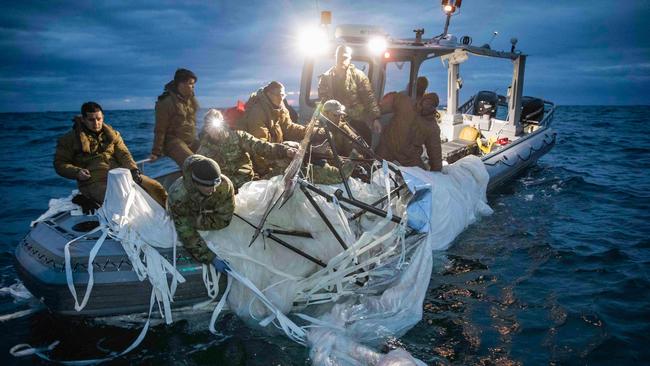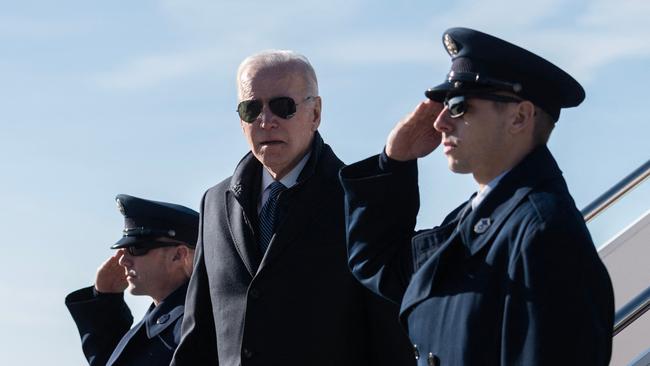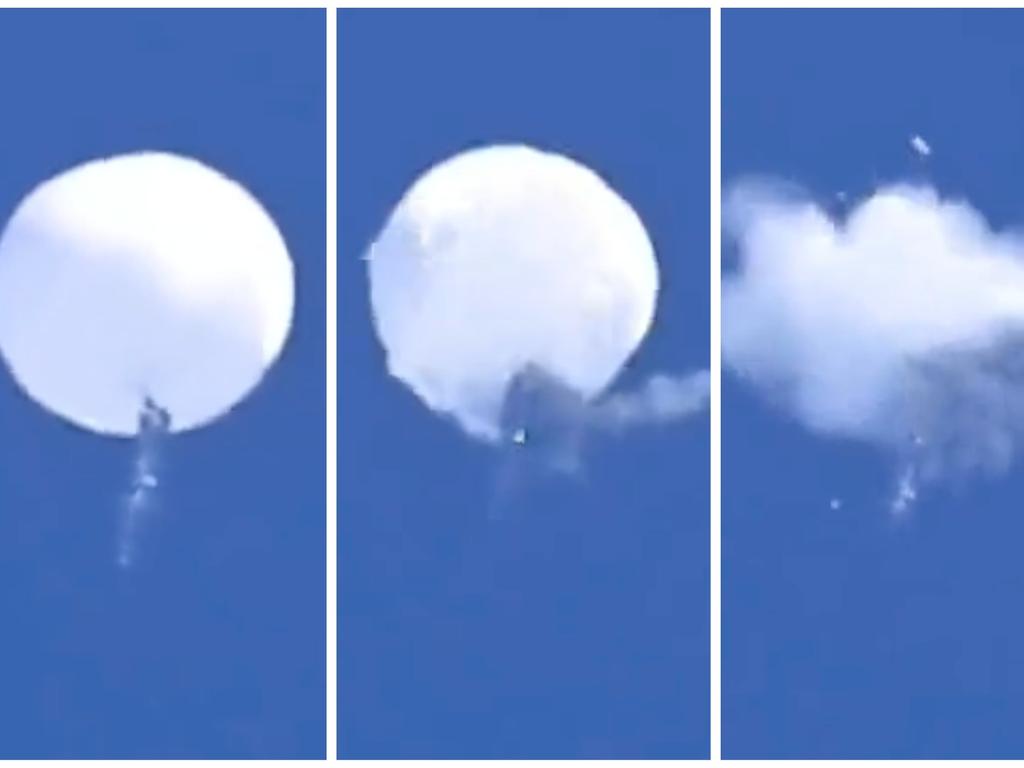There is no choice but to engage with China
Isolating the totalitarian state along Cold War lines is neither possible nor in our interests.

The Chinese spy balloon that drifted high above the United States last week was 12 miles out of range of American gun owners but that didn’t stop them dreaming. The Ohio senator JD Vance posted a photograph of himself looking watchfully skywards and clutching an assault rifle. Congressman Ryan Zinke called on America to “take the shot”.
By the time the balloon was zapped (by an F-22 fighter jet), it had been transformed from a rather old-fashioned piece of espionage equipment to a full-blown metaphor for relations between Washington and Beijing. A literal Chinese bubble had appeared above America - and Americans had burst it. “China’s balloon could be America’s awakening,” wrote the conservative commentator Richard Fontaine, predicting a surge in support for the “highly competitive approach” to “the China challenge”. Among many things to fear in 2023, this view of China, and of the West’s role in confronting it, scares me the most.
In the past ten years, and with increasing acceleration, western governments have been sucked into a new Cold War stand-off with China. Almost every week brings news of hardened attitudes, encirclement and mutual recrimination between two increasingly determined and well-armed blocs. In the South China Sea, Xi Jinping’s forces have converted tiny shoals and sandbanks claimed by their neighbours into military airstrips. In the East China Sea, his ships circle the Senkaku Islands, administered by Japan. Hottest and most dangerous is the rising tension over Taiwan, the democratic self-ruled island which Beijing claims as its own and which it has been menacing with ever larger and more aggressive military exercises.

The US has thrown itself into the confrontation. It was Joe Biden who broke with the long-established strategy of diplomatic ambiguity over Taiwan, by which the US both agreed that it was part of China and sold it weapons to deter invasion but never committed to fight for it. Last week, his defence secretary Lloyd Austin announced that 30 years after closing its permanent outposts in the Philippines, the US will establish four new military bases there facing the South China Sea and Taiwan.
Japan is responding by doubling its defence budget and acquiring long-range missiles; South Korea’s president is talking about the possibility of going nuclear. Countries of the region are clustering in new groupings such as Aukus, under which America and the UK will supply nuclear submarines to Australia. Like Germany and France, Britain has dispatched naval ships and fighter planes in a “pivot to Asia” matching that of the US.
Spying, an arms race, two nuclear superpowers - to anyone old enough to remember, it feels like a replay of the US-Soviet confrontation that prevailed for four decades after the Second World War. This has become, in the space of a few years, simply the way things are. But there is a better and safer way to negotiate the rivalry between China and the West, one that acknowledges the ways in which the world has changed since the 20th century.
To argue this, it is not necessary to defend the Chinese government, a regime that persecutes, imprisons and, on occasion, murders those who oppose it. The latest example of its iniquity is in Hong Kong, where 16 democracy activists are this week on trial for organising an informal primary election in 2020. But the question is not whether the Chinese government is a force for good. It is about identifying the best way to deal with a totalitarian state that reduces the chances of a catastrophic war that would hurt the whole world.

The answer is not capitulation or appeasement but a clear-eyed recognition of the reality of modern China and the impossibility of isolating it along Cold War lines. Xi is not Putin, a Soviet nostalgist struggling to maintain the dignity of a dying empire. China is not a bubble; its military and economic rise, and the relative decline of the West, are inexorable. We may not like Xi but we have to live with him. That means accepting there is no sensible alternative to engagement with China, and on occasion to compromise, however uncomfortable it may feel.
In practice this means standing up to Xi without rubbing his nose in it and seeking opportunities to co-operate in those fields where both sides stand to gain. However fast the People’s Liberation Army is growing, it will be years before it matches the US and its deterrent power. Xi and his generals know this without having US aircraft carriers - or British warships - waved in their faces in the Taiwan Strait. Token gestures, like last year’s “solidarity” visit to Taiwan by the former House Speaker Nancy Pelosi, humiliate Beijing without making the island any more secure from attack.
Beijing is not attempting to export an ideology, as the Soviet Union did during the first Cold War. Modern China depends for its prosperity on flows of global capital. The two sides are so deeply enmeshed economically that mutual isolation is a losing proposition for both. The world’s biggest problems, from North Korea to climate change to the spread of the killer drug fentanyl, can only be solved by constructive co-operation between China and the West.
Cold War thinking is easy. It is flattering to analyse international competition in terms of moral black-and-white; for politicians of a certain age, it is almost nostalgic. But the modern world is too complicated to treat China as a balloon waiting to be popped.
THE TIMES







To join the conversation, please log in. Don't have an account? Register
Join the conversation, you are commenting as Logout